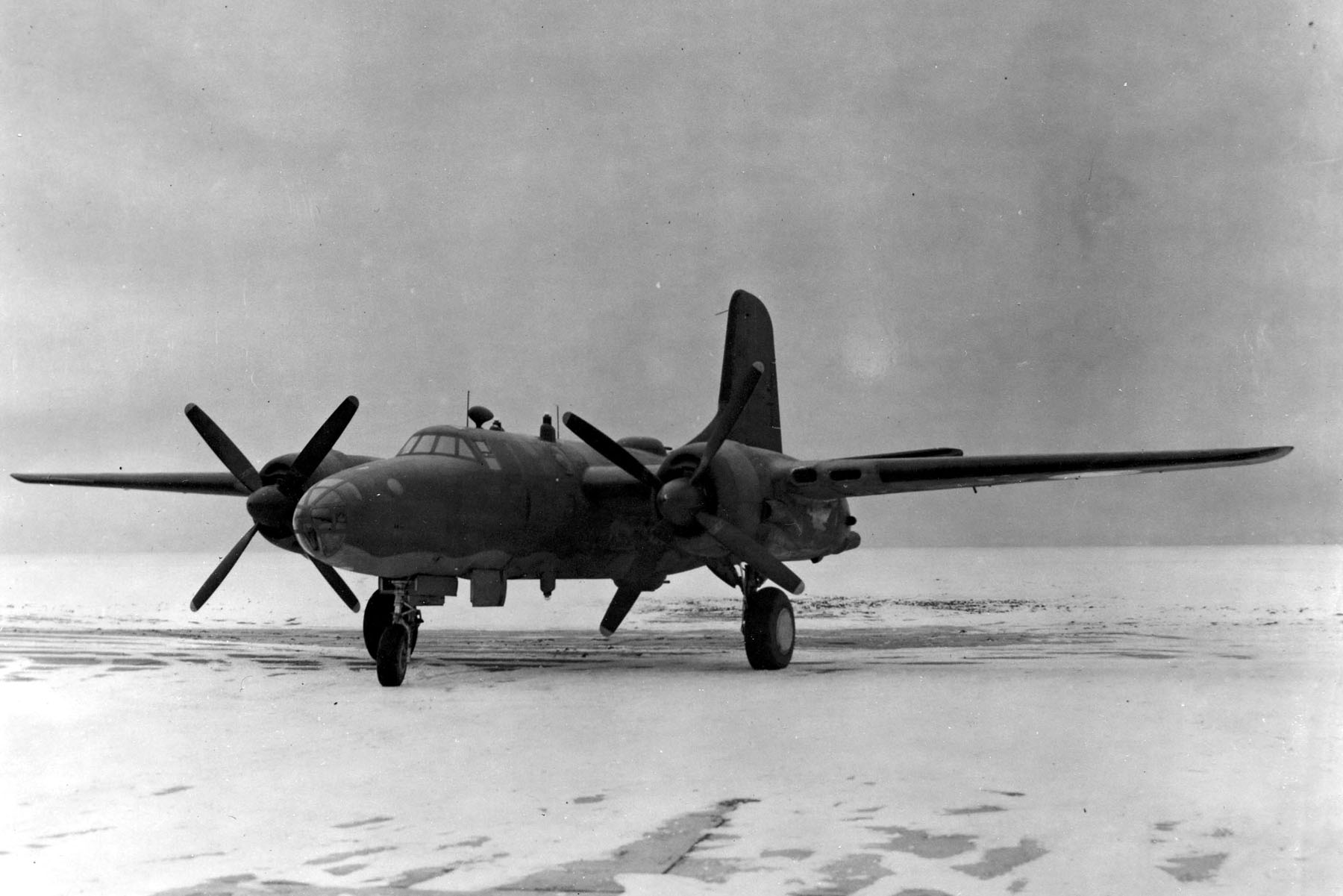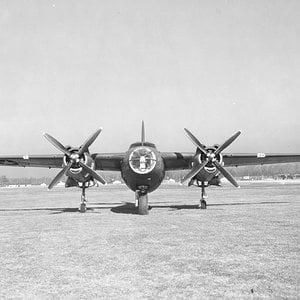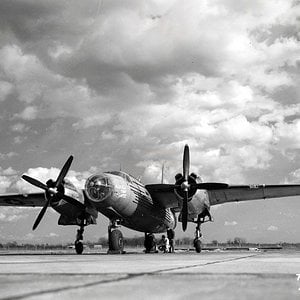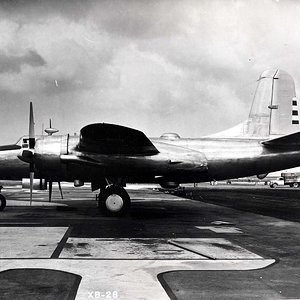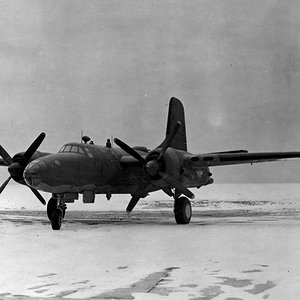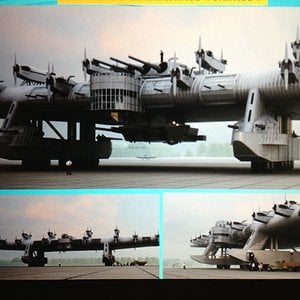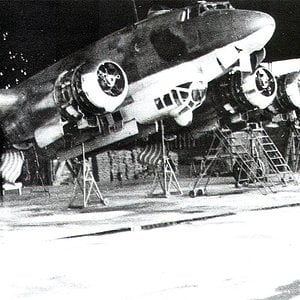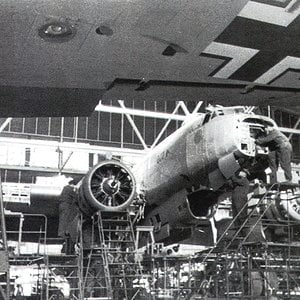Navigation
Install the app
How to install the app on iOS
Follow along with the video below to see how to install our site as a web app on your home screen.
Note: This feature may not be available in some browsers.
More options
You are using an out of date browser. It may not display this or other websites correctly.
You should upgrade or use an alternative browser.
You should upgrade or use an alternative browser.
The XB-28 (NAA model NA-63) was originally conceived as a high altitude version of the B-25 medium bomber; however, the final design of the aircraft was entirely new and bore little resemblance to the Mitchell. The aircraft featured a cylindrical pressurized fuselage and a conventional tail. The XB-28 could carry a 4,000-pound bomb load as high as 34,600 feet. The armament consisted of three remote-controlled and remotely-sighted power turrets with a pair of .50-cal. machine guns in each.
Although the XB-28 was a successful design, the aircraft never went into production. One reason for this was high-altitude bombing was too susceptible to errors caused by wind, cloud cover, etc., especially in the Pacific Theater of Operations. Another was the increasing effectiveness of medium bombers at low and medium levels along with improved tactics. Finally, the performance gains were not considered great enough to interrupt production of proven combat models.
Performance was impressive enough for the Army to order a second prototype built as a high-altitude photo reconnaissance aircraft. This plane was designated XB-28A but never progressed past the prototype phase.
Type Number built/
converted Remarks
XB-28 1 High-altitude medium bomber
XB-28A 1 High-altitude photo recon aircraft
TECHNICAL NOTES:
Armament: Six .50-cal. machine guns and 4,000 lbs. of bombs
Engines: Two Pratt & Whitney R-2800-27 Double Wasp radials of 2,000 hp each (takeoff power)
Maximum speed: 372 mph
Cruising speed: 255 mph
Range: 2,040 miles
Service ceiling: 33,500 ft.
Span: 72 ft. 7 in.
Length: 56 ft. 5 in.
Height: 14 ft. 0 in.
Weight: 35,740 lbs. (gross)
Crew: Five
Serial numbers: 40-3056 (XB-28) and 40-3058 (XB-28A)
Although the XB-28 was a successful design, the aircraft never went into production. One reason for this was high-altitude bombing was too susceptible to errors caused by wind, cloud cover, etc., especially in the Pacific Theater of Operations. Another was the increasing effectiveness of medium bombers at low and medium levels along with improved tactics. Finally, the performance gains were not considered great enough to interrupt production of proven combat models.
Performance was impressive enough for the Army to order a second prototype built as a high-altitude photo reconnaissance aircraft. This plane was designated XB-28A but never progressed past the prototype phase.
Type Number built/
converted Remarks
XB-28 1 High-altitude medium bomber
XB-28A 1 High-altitude photo recon aircraft
TECHNICAL NOTES:
Armament: Six .50-cal. machine guns and 4,000 lbs. of bombs
Engines: Two Pratt & Whitney R-2800-27 Double Wasp radials of 2,000 hp each (takeoff power)
Maximum speed: 372 mph
Cruising speed: 255 mph
Range: 2,040 miles
Service ceiling: 33,500 ft.
Span: 72 ft. 7 in.
Length: 56 ft. 5 in.
Height: 14 ft. 0 in.
Weight: 35,740 lbs. (gross)
Crew: Five
Serial numbers: 40-3056 (XB-28) and 40-3058 (XB-28A)

